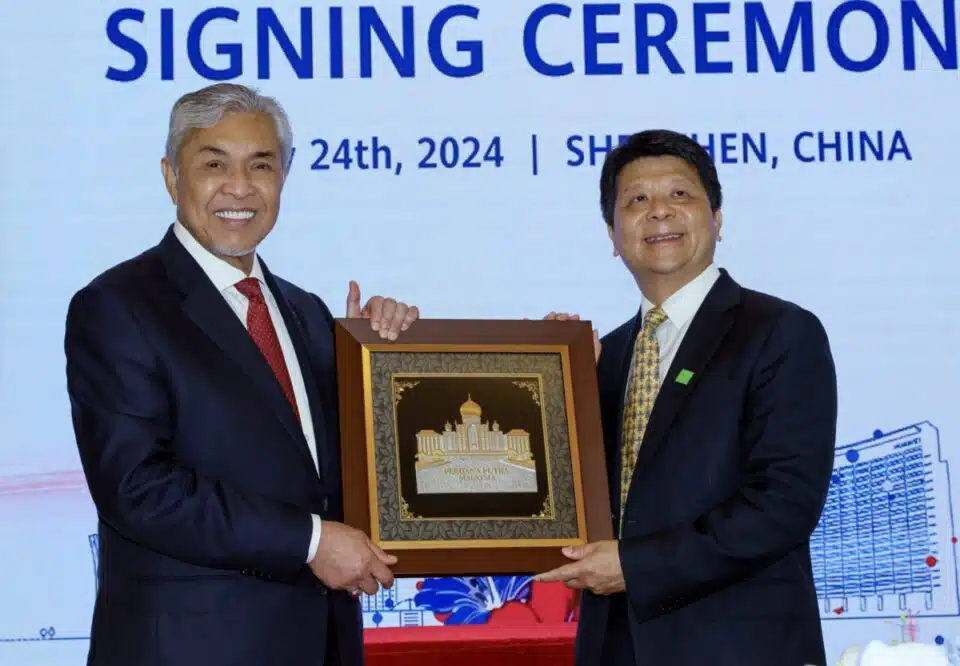SHENZHEN, May 24 — Malaysia is expected to receive a more efficient disaster management system which uses new technology to prepare for any disaster, said Deputy Prime Minister Datuk Seri Ahmad Zahid Hamidi.
He said the technology transfer was realised through a memorandum of understanding (MoU), signed between Universiti Kuala Lumpur (UniKL) and Chinese telecommunications company Huawei here today.
“They (Huawei) have a system that can provide results within 30 seconds to be analysed, which serve as early warning signs of floods, storms or other conditions.
“(Thus) Malaysia really needs a system such as this, as we are facing the Northeast Monsoon and soon the Southwest Monsoon,” he told Malaysian media after witnessing the MoU signing ceremony.
Zahid is on his first official visit to China. The 11-day visit, which started Wednesday, was at the invitation of Chinese Vice-Premier Ding Xuexiang.
Also present at the MoU signing were Deputy Foreign Minister Datuk Mohamad Alamin and Majlis Amanah Rakyat chairman Datuk Asyraf Wajdi Dusuki.
Meanwhile, Zahid said the discussion with Huawei during his visit to the company’s headquarters here also focused on efforts to empower the field of Technical and Vocational Education and Training (TVET), guided by the latest technology, including artificial intelligence (AI), Internet of Things (IoT) and robotic systems.
“Huawei has been in Malaysia for 23 years, and the company has introduced some new technologies, such as AI, which is relatively new in Malaysia, and we are confident that the efforts made by Huawei will be able to transfer, not only technology, but also knowledge, to our country.
“Next is IoT, which is also a focus area, where the opportunity should be given to TVET students, followed by robotics, which in my opinion, has been around for a long time in this country (China), but is new in Malaysia. This will certainly (enable) more people who can handle robotics (and) this system in our country,” he said.
Apart from that, Huawei will open a new administrative centre in Malaysia, thus proving the telecommunications company’s commitment to create about 6,000 job opportunities for those involved in the 5G and 5GA systems in Malaysia, he said.
Zahid, in a Facebook post, said that Huawei also expressed its intention to support Malaysia’s digital leadership direction, through the development of talent in the field, and to help explore the digital and technology fields as a catalyst towards becoming a developed and high-income country.
“I hope Malaysia’s close cooperation with Huawei will continue to be intensified, to enable Malaysia to contribute towards digital technology innovation, in addition to producing more local skilled workers in the field,” he said.
Earlier, Zahid visited the Huawei Von Neumann Exhibition Hall (Industry and Digital Transformation) and viewed the variety of products and technologies developed by Huawei, including the digitalisation of government administration systems; urban traffic congestion management; smart city intelligence; Huawei Cloud; artificial intelligence centre and data security.
— Bernama





